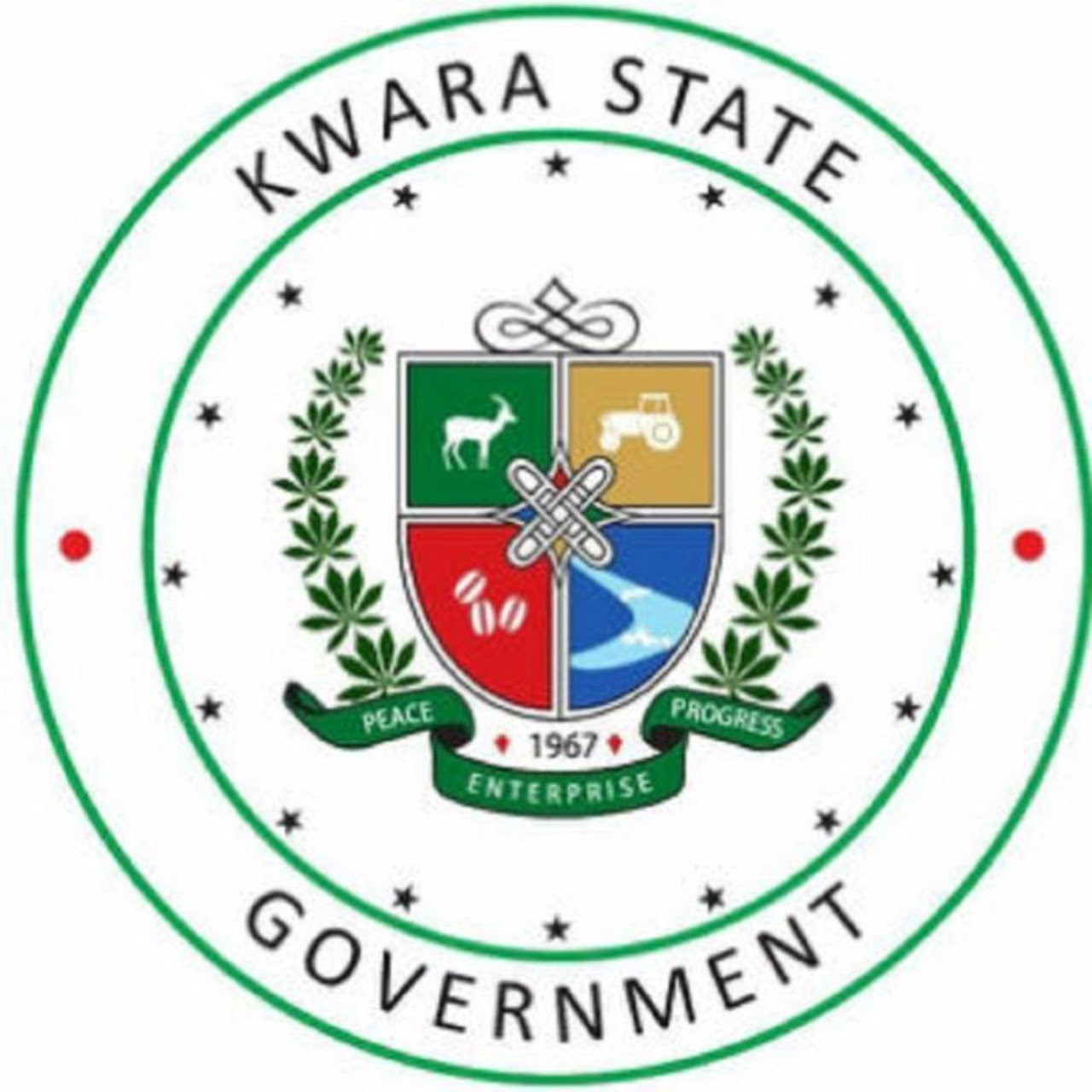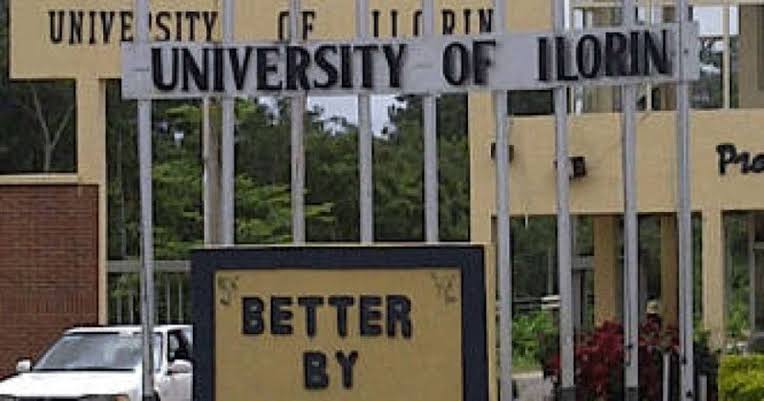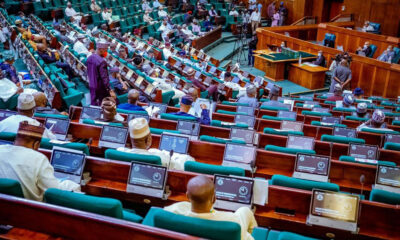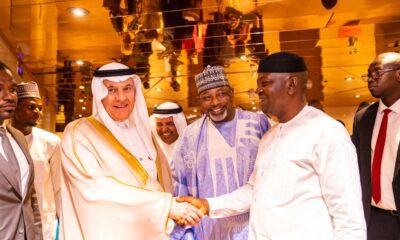Education
Cambridge educates 3- to 6-year-olds in Nigeria
Cambridge, the world’s largest provider of international education programmes, is launching its first early years education programme which will help support early childhood schooling in Nigeria in children as young as 3.
The new play-based programme, which has been developed following a successful roll out in India, has been expertly designed to give children aged 3 to 6 the best start in life, helping them meet key early milestones and thrive in and out of school.
Cambridge Early Years will form the first stage in the Cambridge Pathway, a high-quality and joined-up path for educational success for children aged 3 to 19.
Multiple studies confirm that education during early years is crucial. Research from the Organisation for Economic Co-operation and Development’s (OECD) International Early Learning and Child Well-being Study shows that, among other benefits, a high-quality early childhood education and care (ECEC), compared to an average one, can double the growth in children’s verbal comprehension.
The decision to expand its education pathway will see Cambridge help schools in Nigeria and around the world strengthen their early years education provision, something it believes will reap dividends for parents and teachers as children progress through their school careers.
Group Managing Director for International Education at Cambridge, Rod Smith, commented, “We all know that the early years of a child’s life are crucial to their development. Research shows that the better we support children at this stage, the more positive impact we can have on their future.
“Our new Cambridge Early Years programme draws on Cambridge’s unrivalled expertise in high-quality education to help schools in Nigeria give children as many exciting and stimulating learning experiences as possible – making the most of this key phase of brain development and getting children off to a good start in life.”
…Play-based learning that supports the transition to primary school
The Cambridge Early Years programme draws on Cambridge’s worldwide research on curriculum principles from high-performing education systems, as well as analysis of best practice in early years education and the characteristics that have most impact.
The research resulted in 12 key principles that underpin the programme. The principles were developed in collaboration with world-class scholars, researchers and practitioners in early years education. The importance of play-based learning, and the need to move children gradually towards more formal teaching in readiness for primary education, are two of the principles that guided the development of every element of the programme. The principles ensure that children not only acquire knowledge from a young age but also the essential skills to navigate and adapt to a rapidly changing world.
The Cambridge Early Years programme provides a flexible structure to support each child’s progress and can be adapted to the needs of different schools in Nigeria, providing a bespoke teaching package.
Specially created classroom resources and assessments will help teachers understand each child’s progress while fostering their all-round development far beyond the classroom.
Regional Director, Sub-Saharan Africa for International Education at Cambridge, Juan Visser, added: “We know that good early years education can benefit a child’s whole academic career and so I’m thrilled that we are adding this new stage to the Cambridge Pathway – it’s what schools have been asking for.
“Our Cambridge Early Years programme brings together the best approaches from around the world with extensive teacher support. We want to help schools in Nigeria support children’s long-term development and help them be ready for the world.”
Cambridge’s research with schools around the world found that early years provision can be fragmented, drawn from a mix of different resources, curricula, assessment and training. This can make it hard to understand how children are progressing or to determine what approaches have the best impact on their development.
By ensuring all the different elements work well together, Cambridge helps schools give their learners a comprehensive and high-quality early years education.
Education
Kwara Govt warns against illegal charges for Common Entrance exam


The Kwara State Government has warned principals of Junior Secondary Schools and head teachers of primary schools across the state against illegal charges for the state placement examination (Common Entrance).
Any violator will face the full wrath of the law, the state Commissioner for Education and Human Capital Development, Hajia Sa’adatu Modibbo Kawu, warned on Tuesday in her office in Ilorin.
She emphasized that the common entrance is free and government will not tolerate anyone or group of people extorting money, under any guise, from the pupils because the examination is fully sponsored by the state government.
Hajia Modibbo Kawu urged the principals and head teachers to desist from all acts that could dent the image of the state government.
She also cautioned them against aiding and abetting examination malpractices, stating that the present administration has zero tolerance for examination malpractices.
The commissioner implored the parents and guardians of the pupils to report any principal or head teacher with suspicious acts to her office directly, reiterating that her office is open to everyone.
Education
UNILORIN appoints 40 new Professors


By Saka Laaro, Ilorin
The University of Ilorin has announced the promotion of 40 of its senior academics to the rank of Professor.
The elevation, which was approved by the Minister of Education, Prof. Tahir Mamman, SAN, was sequel to the recommendations of the University Appointment and Promotion Committee.
A statement from the Office of the Registrar said that the 40 distinguished scholars were found to have excelled in the realms of teaching, research and community service and subsequently promoted to the highest rank obtainable in the academia.
The breakdown of the beneficiaries of the promotion exercise shows that 11 of the new Professors are produced by the Faculty of Agriculture and they are Prof. Sidiqat A. Aderinoye-Abdulwahab, Prof. L. L. Adefalu,Prof. F. O. Takim and Prof. A. A. Badmos.
Others are Prof. Foluke E. Sola-Ojo, Prof. W. A. Jimoh, Prof. M. I. Abubakar, Prof. T. H. Aliyu, Prof. R. O. Uddin II, Prof. T. O. Amusa and Prof. Mutiat A. Balogun.
From the Faculty of Arts are Prof. K. M. U. Gbodofu, Prof. Y. A. Abdullahi, Prof. Abosede R. O. Babatunde, Prof. Bolanle E. Arokoyo, and Prof. P. U. Nwosu while the Faculty of Basic Medical Sciences produced Prof. A. S. Alabi, who teaches at the Department of Anatomy.
Two Lecturers from the Faculty of Clinical Sciences were also elevated to the rank of Professor and they are Prof. T. O. Olanrewaju and Prof. O. A. M. Adesiyun.
The Faculty of Communication & Information Science also produced two new Professors through Prof. Tinuke O. Oladele and Prof. Saudat S. Abdulbaqi while those promoted from the Faculty of Education are Prof. O. O. Okoji, Prof. Folakemi O. Adeniyi-Egbeola and Prof. Florence O. Daramola
From the Faculty of Engineering and Technology are Prof. A. T. Ajiboye, Prof. A. Y. Abdulrahman, Prof. M. O. Sumonu, Prof. Rasheedat M. Mahamood and Prof. T. K. Ajiboye.
The Faculty of Law produced one new Professor in the person of Prof. A. C. Onuora-Oguno.
The Faculty of Life Sciences produced four new professors. They are Prof. M. O. Nafiu, Prof. Faoziyat A. Sulaiman, Prof. Risikat Nike Ahmed, and Prof. I. O. Sule.
Those promoted from the Faculty of Management Sciences are Prof. M. A. Ajayi and Prof. Rihanat I. Abdulkadir as the Faculty of Physical Sciences also produced two new professors through Prof. Haleemat I. Adegoke and Prof. O. A. Abidoye.
The promotion of Prof. Monisola A. Tunde of the Department of Geography and Environmental Management was also confirmed while the Faculty of Veterinary Medicine also produced one of the new Professors in the person of Prof. Z. Jaji from the Department of Veterinary Anatomy.
Education
Student Union election turns deadly: One student flees for life, parents killed in tragic attack
In the quiet town of Ekiadolor, the College of Education became a battleground as student politics turned deadly. Odunuga Gbenga, a promising student, found himself thrust into the chaos of campus conflict.
It all began innocently enough when Gbenga was nominated as a contestant for the Student Union presidency. Little did he know that this simple act would plunge him into a nightmare.
During the election, tensions ran high as rival factions clashed violently. What was supposed to be a democratic process spiraled into chaos, with reports of killings, rapes, and riots echoing across the school grounds.
In fear for his life, Gbenga fled the campus, seeking refuge in the familiar embrace of his parents’ home in Edo State. But safety eluded him as darkness fell on that fateful night.
Under the cover of midnight, a group of assailants descended upon Gbenga’s home, shattering the peace of the night. In a desperate bid for survival, Gbenga fought bravely, but the odds were against him.
Tragically, Gbenga’s valiant efforts were in vain. Though he managed to escape, his beloved parents were not as fortunate. The attackers, driven by unknown motives, mercilessly took the lives of Mr. Samuel Odunuga and Mrs. Taiwo Odunuga, leaving a family shattered and a community reeling in shock.
Since that harrowing night in 2023, the search for Gbenga has consumed the hearts and minds of his grieving family. Their plea echoes through the pages of this newspaper, a desperate cry for justice and closure in the face of unspeakable tragedy.
-
Finance4 months ago
Court orders Sen. Victor Umeh to repay N136m bank debt to AMCON
-



 Abuja Update3 months ago
Abuja Update3 months agoUNDP, FG partnership needed to achieve inclusion, equity- Minister
-
Abuja Update2 months ago
Banks drive stock market performance with N147bn gain
-
capital market2 years ago
Rt.briscoe, FBNH, Others halts negative performance of stock market
-
Submission Guidelines4 months ago
CALL FOR SUBMISSIONS: POETRY COLUMN-NND
-



 Health1 month ago
Health1 month agoCapacity training will reduce migration of health workers- NPHCDA
-



 Business4 weeks ago
Business4 weeks agoTingo Group unveils Tingo Electric, Tingo Cola drink at Lagos launch
-
News5 months ago
Oil thieves sponsoring malicious media campaign against Navy – Spokesman
















